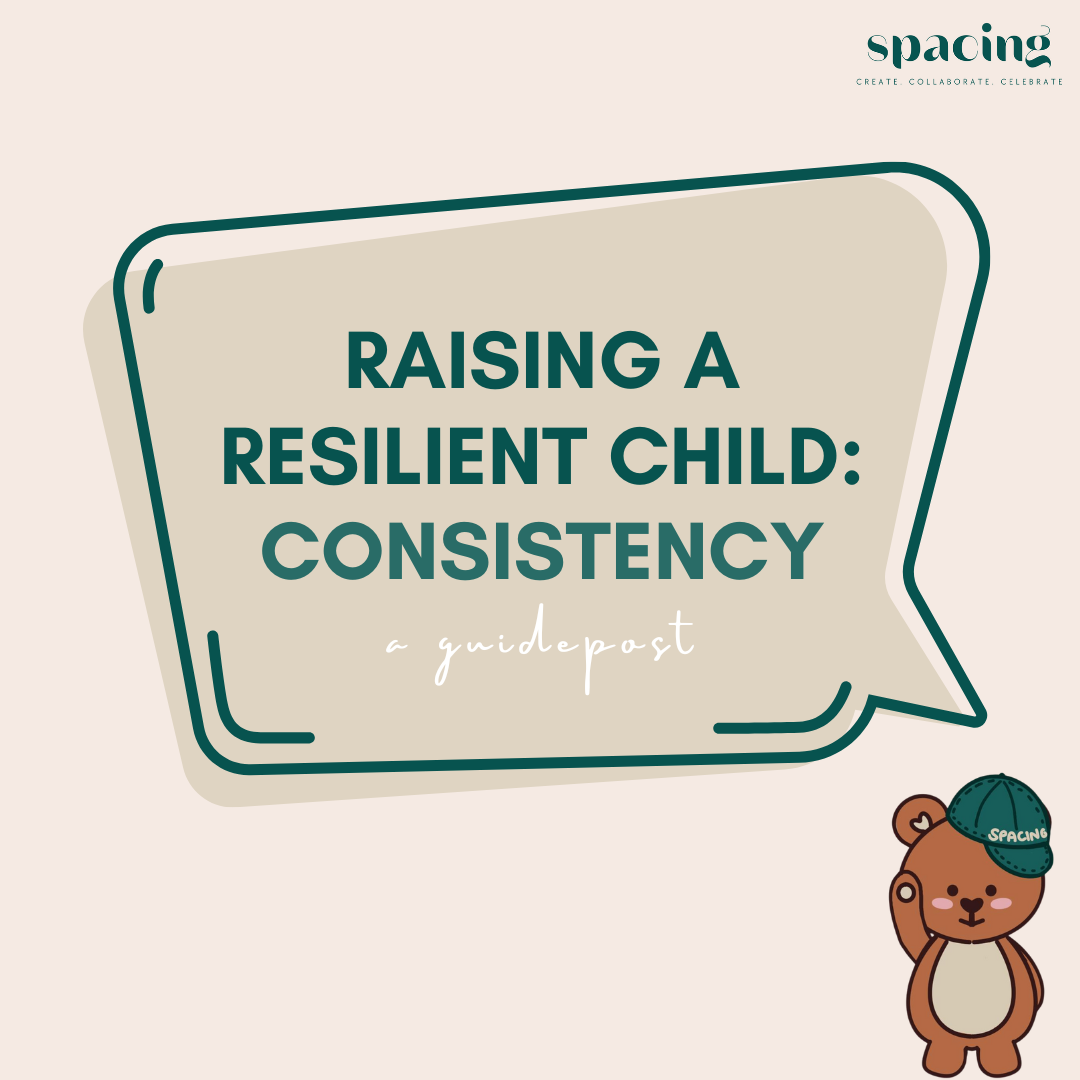Third guidepost in this resilience roadmap: Consistency
In our previous blog post on Raising a Resilient Child, we emphasized the significance of consistency. In this article, our focus shifts to maintaining consistency in setting expectations. Often, frustrations arise due to the inconsistency of expectations and boundaries. What exactly do we mean by inconsistent expectations?
Take Jane, for instance. She allows her children to watch TV for an hour on weekends. Some days, when her children request an extension by whining or throwing a fuss, she might say, “Okay, one last episode, and then you have to start your work.” However, on other days, she insists, “No! You must start your work now; stop throwing a tantrum!” This inconsistency, even if “being nice” occurs only “sometimes,” can be confusing for children. As a result, they may continually test your boundaries, hoping to achieve their goals on your more lenient days.
Practicing consistency requires mindfulness and effort to remind ourselves of the expectations we set. Even on days when we might feel mentally or physically tired from work, we should not let things slide. It’s crucial to uphold the standards we’ve established, as this not only reduces confusion but also fosters respectful relationships with our children
Why is consistency so important?
Establishing Clear Boundaries: Consistency helps in setting clear boundaries and expectations for children. When parents are consistent, children learn what is acceptable behaviour and what is not.
Building Trust: Consistent parenting builds trust between parents and children. Children feel secure when they know what to expect from their parents, creating a stable and nurturing environment.
Promoting Emotional Regulation: Knowing what to expect allows children to develop emotional regulation. Consistency provides a sense of security, reducing anxiety and promoting emotional well-being.
Encouraging Accountability: Consistent consequences for actions teach children about accountability. They understand that their choices have predictable outcomes, fostering a sense of responsibility.
Facilitating Learning: Children learn through repetition and reinforcement. Consistent responses help reinforce positive behaviour and discourage negative behaviour, promoting learning and growth.
Enhancing Communication: Consistency in communication strengthens the parent-child relationship. Children are more likely to open up and communicate when they feel their parents are reliable and consistent. Read more about connection to build effective communication here.
“Consistency is the silent foundation of effective parenting. It’s the unwavering support that builds trust, the firm boundaries that provide security, and the steady guidance that lights the path to a resilient and confident future for our children.” – Eileen, Founder of Spacing and Educator




